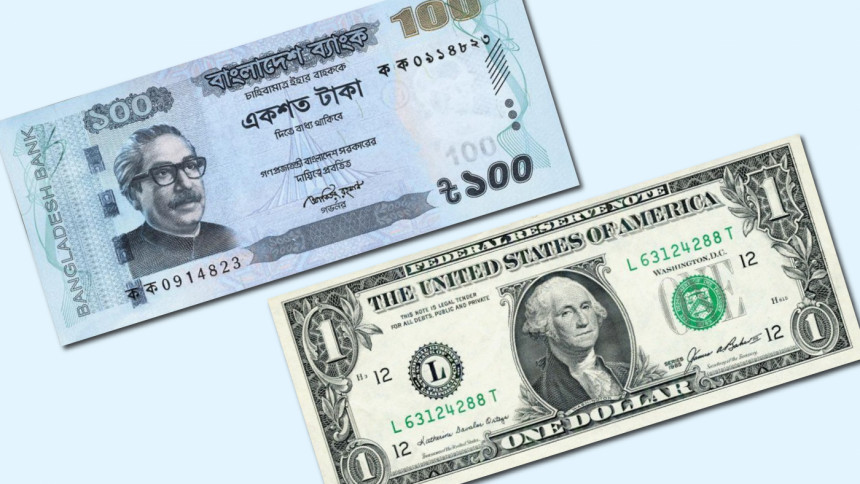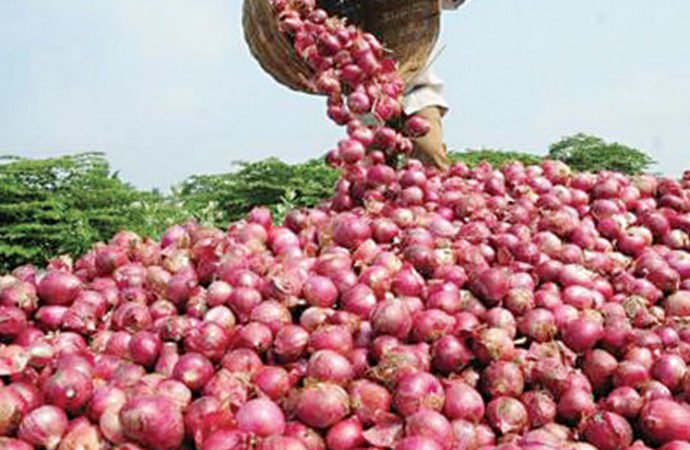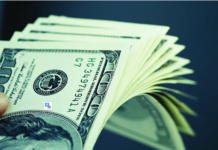

The taka yesterday lost 0.91 per cent in value against US dollars, the sharpest single-day fall in the past one decade, amid the falling supply of the American greenback against surging demand to settle import bills.
Now, a US dollar will cost Tk 87.50, up Tk 0.80, after the Bangladesh Bank adjusted its rates for the dollar considering the market demand.
This is the fifth fall of the local currency this year and came a week after it allowed depreciation by Tk 0.25 a dollar.
“The central bank will devalue the local currency more in line with the market requirement, if needed,” said Md Habibur Rahman, chief economist of the central bank.
The BB had depreciated the local currency based on the supply-demand situation of the greenback, he said.
The exchange rate stood at Tk 85.80 a dollar on December 30 and Tk 84.80 on May 16 last year.
Economists welcomed the currency devaluation, calling it time-befitting as it would help keep the country’s foreign exchange reserves buoyant and rein in imports.
They also urged the government to take fiscal measures to insulate the general public from imported inflation originating from the devaluation of the taka as well as strengthen the safety-net programmes to protect the poor and the low-income groups.
The previous sharpest single-day taka devaluation came on December 12, 2011, when the central bank depreciated the inter-bank exchange rate by Tk 1.19 to Tk 79.79 per dollar, BB data showed.
Bangladesh is under tremendous pressure to weaken the taka to protect its depleting foreign currency reserves amid soaring imports against moderate exports and falling remittances.
Despite the devaluation, many banks yesterday charged importers more than Tk 95 under the BC (bills for collection) selling arrangement due to the scarcity of dollars.
Although the central bank fixed the BC selling rate at Tk 87.60 per dollar, banks still had to ignore the BB instruction.
The taka traded at more than Tk 97 to the dollar in the kerb market, an illegal trading platform for selling and buying foreign currencies.
A BB official, wishing not to be named, says that the central bank might weaken the local currency further in the quickest possible time as the latest depreciation might not be able to stop the escalation of imports.
The exchange rate came under pressure against the dollar since the final quarter of 2021 when imports bounced back due to the pent-up demand and price increases in the global market following the improvement in the coronavirus situation.
The monthly import has shot past $7 billion, dealing a major blow to the reserves since exports and remittances flow have not kept pace.
Between July and March, import payments escalated to $61.52 billion, up 44 per cent year-on-year while exports grew 33 per cent to $36.61 billion. This inflicted the highest-ever trade deficit of $24.90 billion on Bangladesh during the period.
The trade deficit reduced the reserves to $41.92 billion last week in contrast to $46.15 billion on December 31. The reserves had surpassed $48 billion in August.
Selim Raihan, executive director of the South Asian Network on Economic Modeling, says the central bank had no other scope but to depreciate the local currency to address the market demand.
“The depreciation will bring imported inflation, meaning that the poor will feel the pinch further from the increase in prices. So, the government should take fiscal measures to help the poor.”
The coverage of the social safety net programmes should be widened in the upcoming budget, the economist said, adding that the ongoing open market sales of essential items should be expanded.
He also suggested the government withdraw taxes on food items as far as possible.
Mustafizur Rahman, a distinguished fellow of the Centre for Policy Dialogue (CPD), thinks the depreciation will not bring about many negative impacts because banks are already charging importers Tk 95 per US dollar.
He lays emphasis on market governance to tackle manipulations that prevail in the supply chain of foods and tackle inflationary pressures.
“Imports duties could also be adjusted as the government has done in the case of rice.”
Fahmida Khatun, executive director of the CPD, said that the use of hundi, an illegal cross-border financial system, has been revived recently due to the large exchange rate gap between the formal market and the kerb market.
“So, both soaring import costs and the downward trend of remittances should be considered with utmost importance in order to keep the macroeconomy stable.”
She says the ongoing global financial crises stem from Russia’s invasion of Ukraine and the coronavirus pandemic and they may persist.
“This means the prices hike in the global market will not ease soon,” she said, urging the government to rein in the imports of non-essential items to protect reserves.
“In addition, the implementation of the import-dependent projects should be postponed as this will give much-needed room to the government to take fiscal measures.”









